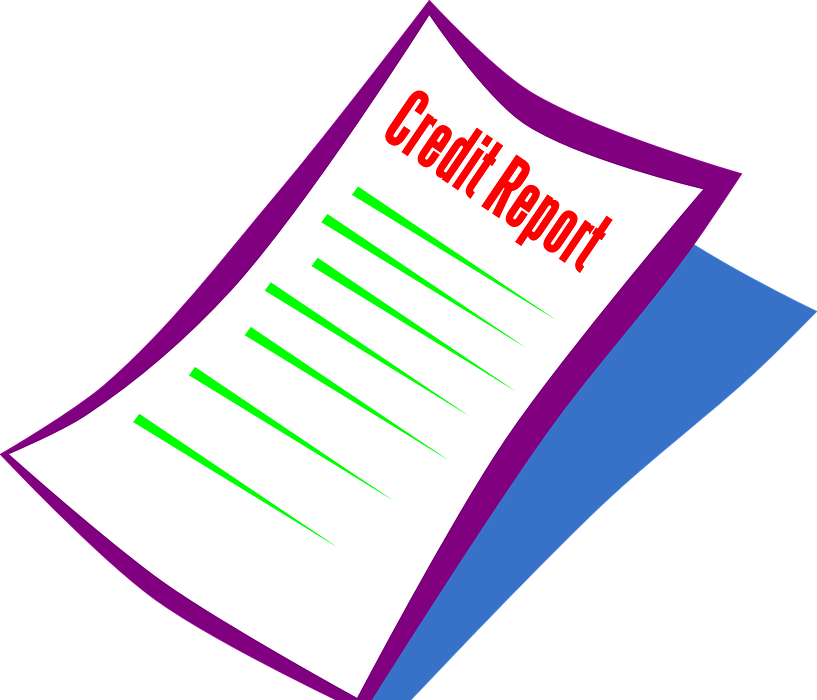Your Credit Score
Before lenders make the decision to lend you money, they have to know if you're willing and able to repay that mortgage. To figure out your ability to repay, they look at your Debt-to-Income (DTI) ratio.
To assess your willingness to repay, they use your credit score.
Since we live in an automated world, it should come as no surprise that your creditworthiness boils down to a single number. The FICO score is built by credit reporting agencies. These agencies use the payment history of your various loans: credit cards, mortgages, car loans and the like.Your credit score comes from your repayment history. They don't take into account your income, savings, amount of down payment, or personal factors like gender, race, nationality or marital status. These scores were invented specifically for this reason. Credit scoring was invented as a way to take into account only what was relevant to a borrower's willingness to repay a loan.
Delinquencies, payment behavior, debt level, length of credit history, types of credit and the number of credit inquiries are all calculated into credit scores. Your score is based on the good and the bad of your credit report. Late payments count against your score, but a consistent record of paying on time will raise it.
The three reporting agencies use slightly different formulas to build a credit score. While these methods vary from one agency to another, the differences aren't huge; all of the agencies use the following to calculate your credit score:
- Credit History - How many years have you had credit?
- Payment History - Do you have any payments later than 30 days?
- Balances on your Credit Cards - How many accounts do you hold, and how much do you owe?
- Inquiries on Your Credit - How many times have lenders pulled your credit report for the purpose of giving you a loan?
These factors are assigned weights based on the formula being used. Each formula produces a single number which may vary a a little from one agency to another. Credit scores range from 300 to 850.
Credit scores make a big difference in your interest rate
Your credit scores affect more than your ability to get a loan. They also affect your interest rate. Higher scores indicate you are a low credit risk, and thus may qualify for a better mortgage rate.
Raising your credit score
 Unfortunately, there isn't a lot you can do to immediately improve your credit score. Since the score is based on a lifetime of credit history, it's very difficult to change it quickly. One factor that can help improve your score in a rather short time has to do with your revolving credit. (Credit Cards) If you keep a balance on those accounts, it should always be 50% or less of the maximum limit. For example, if you have a $1,000 limit, never let your balance go above $500.
Unfortunately, there isn't a lot you can do to immediately improve your credit score. Since the score is based on a lifetime of credit history, it's very difficult to change it quickly. One factor that can help improve your score in a rather short time has to do with your revolving credit. (Credit Cards) If you keep a balance on those accounts, it should always be 50% or less of the maximum limit. For example, if you have a $1,000 limit, never let your balance go above $500.
The optimum credit utilization percentage is 30% or less, which means if you credit limit is $1000 you should never let the balance go above $300.
Correcting errors on your Credit Report
If you do encounter a mistake on your credit report, several steps need to be taken to correct the matter:
1. The first thing to do is get a copy of your credit report from each of the three major CRAs:
Equifax, http://www.equifax.com
Experian, http://www.experian.com
TransUnion, http://www.tuc.com
2. In a written letter, tell the CRA what information you believe to be inaccurate. Include copies of documents that support your position. Provide your complete name and address, identify each item in your report you dispute, and request deletion or correction. Be sure to make copies of your dispute letter and enclosures.
3. Send your letter by certified mail, return receipt requested, so you can document what the CRA received.
4. The FCRA mandates that all CRAs reinvestigate the items in question — usually within 30 days — unless they consider your dispute frivolous. They also must forward all relevant data you provide about the dispute to the credit card company. After the credit card company receives notice of a dispute from the CRA, it must investigate, review all relevant information and report the results to the CRA.
5. If the disputed information is found to be inaccurate, the credit card company must notify all nationwide CRAs so they can correct this information in your file. Disputed information that cannot be verified must be deleted from your file.
6. When the reinvestigation is complete, the CRA must give you the written results and a free copy of your report if the dispute results in a change. If an item is changed or removed, the CRA cannot put the disputed information back in your file unless the credit card company verifies its accuracy and completeness, and the CRA gives you a written notice that includes the name, address, and phone number of the credit card company.
7. In addition to the CRA, you should also write to the credit card company about the error. Again, include copies of documents that support your dispute. If you are correct — meaning the information you disputed is found inaccurate — the credit card company cannot use it again. Further, at your request, the CRA must send notices of corrections to anyone who received your report in the past six months.
Bankruptcy
A bankruptcy filing delivers a devastating blow to your credit history and score, but it doesn’t mean you have to wait 10 years before you can  qualify for a mortgage. Many consumers who have filed for bankruptcy have been able to obtain a mortgage once certain waiting periods have been completed, and good credit history has been re-established.
qualify for a mortgage. Many consumers who have filed for bankruptcy have been able to obtain a mortgage once certain waiting periods have been completed, and good credit history has been re-established.
Mortgage lenders are more interested in your recovery — what you’ve done since your filing. It won’t happen over night, but here are some tips and things to keep in mind when you inquire about a mortgage with a tarnished credit past:
Give explanations. No mortgage lender is going to ignore the fact that you’ve filed bankruptcy and he or she will likely want to know the cause of the filing. Your lender will be particularly interested in whether the same situation could happen again. Your chances of being qualified are much better if your bankruptcy was caused by a single event such as a loss of employment or a death in the family, than if it was the result of “just spending too much.”
If the bankruptcy resulted from a single event, it is important to show your lender paperwork describing the incident, such as the layoff notice or death certificate. You may also want to bring in court documents to indicate when the bankruptcy was filed.
Demonstrate good money habits now. Many people who file bankruptcy swear off credit altogether, however, it is important to re-establish your credit rating. If you are unable to obtain a traditional credit card, get a secured credit card. This may require a small annual fee but the small added cost is worth the investment to help rebuild your credit score and history. After a short amount of time demonstrating you are able to make timely payments, you can then apply for a traditional credit card. Make sure you are making other payments (utility bills, cell phone, etc.) on time as well. You won't turn things around in a few weeks, but your credit score will improve quicker than you think.
Save your money. This is a big one; Lenders may be more willing to loan you money if you’ve saved up a considerable amount of money for a down payment and have reserves after closing. They will also like to see that you have savings for that "rainy day" and are appropriately allocating your finances.
Live within your means. Find ways to cut corners with living expenses, and where you spend your money. After a short time those will become daily habits and you will be surprised how quickly you can put away a small nest egg or safety net with your finances. Think small when the time comes to look for a home. Smaller homes often mean smaller mortgages.
Call or email today for more information!
You can also Apply Here at the Innovative Mortgage Services, Inc. corporate website!
Kenneth E Rivard (Kenny)
Licensed Mortgage Loan Originator
NMLS Originator ID: 330416
Innovative Mortgage Services, Inc.
NMLS Company ID: 250769
Phone/Text: 239-470-6484
eFax: 1-866-313-5708
eMail: Kenny@MyFlaHomeLoan.com
No copyright infringement is intended